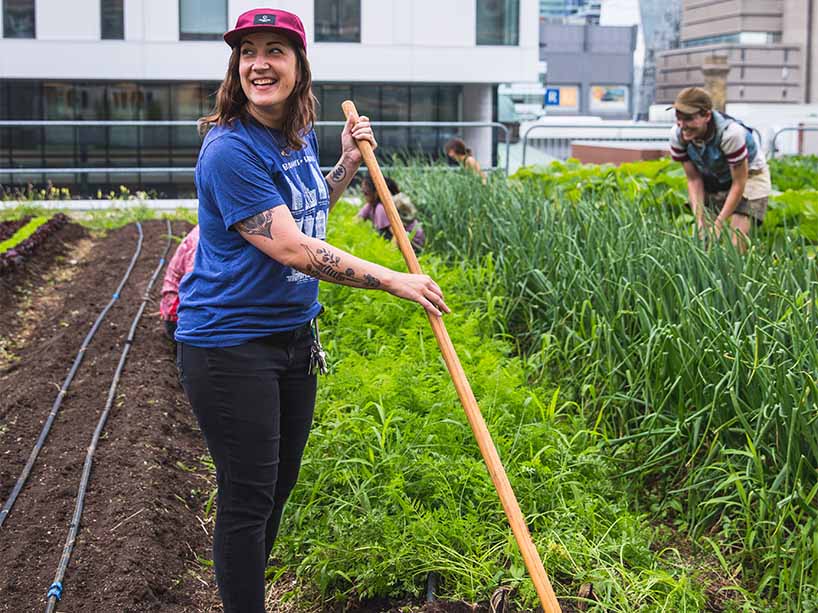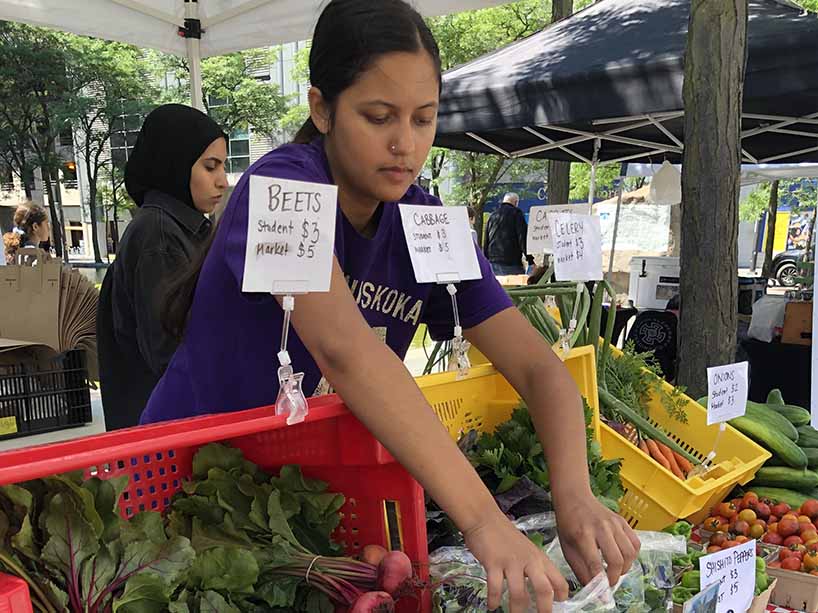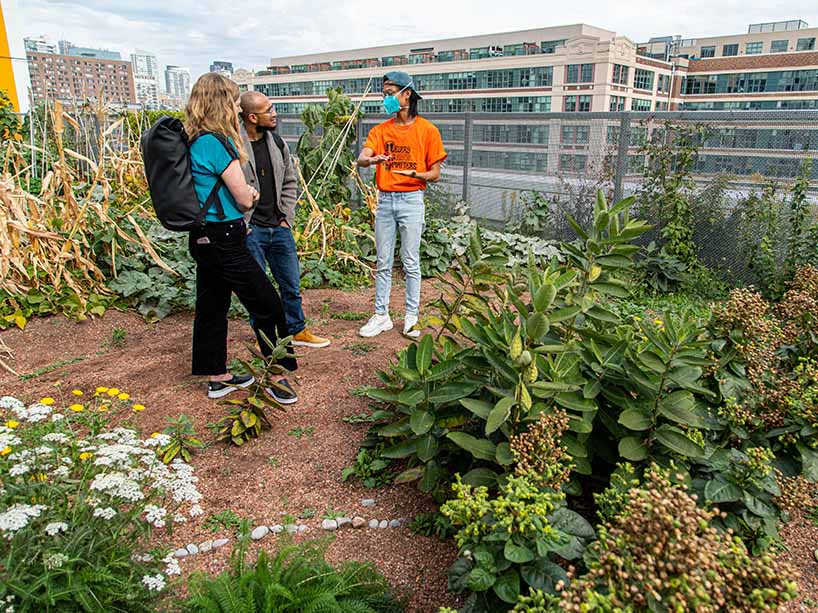How TMU’s Urban Farm is revolutionizing food production and driving sustainability in the city

The Urban Farm at TMU includes two spaces: the newly-constructed rooftop farm on the Daphne Cockwell Health Sciences Complex (DCC) and the quarter-acre rooftop farm on the George Vari Engineering and Computing Centre (ENG).
Do you know where the kale in your salad comes from? Or how the cucumbers in your fridge were grown?
The Urban Farm at Toronto Metropolitan University (TMU) makes answering these questions easy. “We have largely become removed from our food systems and have little idea or appreciation of where our food comes from,” says Sharene Shafie, research coordinator at the Urban Farm. “When people have the opportunity to engage with the spaces that are producing food, it allows them to participate in the process.”
There are many experiential workshops and education-focused events that the Urban Farm offers to the university community – from tours and field visits to in-person training and workshops.
With more than 80 rooftop crops in production across two rooftop farms, the Urban Farm harvests over 2,500 kilograms of fresh produce in a typical growing season and follows a model of thirds distribution plan which maximizes social impact. Every year, one-third of the produce is donated to the community, no more than one-third is sold at market value and one-third is available at equitable rates for TMU students. This distribution system was developed by non-profit organization Urban Roots (external link) and was inspired by the Indigenous principles of reciprocity and honourable harvest.

The Urban Farm uses ecological methods that support the health and well-being of the city’s ecosystem.
The DCC rooftop farm is the first purpose-built rooftop farm under the City of Toronto Green Roof Bylaw (external link) and the team is currently creating supplementary guidelines for urban agriculture on green roofs with the City.
Urban Farm manager Arlene Throness says two of the critical functions of green roofs are stormwater management and reducing the heat island effect, which happens in urban areas that are significantly warmer due to human activities.
“Urban farming has enormous potential to help us mitigate and adapt to the effects of climate change by providing a habitat for various insects and animals, managing stormwater, sequestering carbon and improving air quality. At the Urban Farm at TMU, we are showing that we can grow food while also making the city more livable and providing opportunities for communities to connect to their food system and culturally significant crops and ways of growing,” says Throness.
It’s important to consider the social benefits of urban farming alongside the ecological gains, says Fiona Yeudall, director of the School of Nutrition and associate director of the Centre for Studies in Food Security.

The DCC rooftop farm is dedicated to Black-led and Indigenous-led programs that celebrate Black and Indigenous ways of knowing through programming and the growing of culturally significant crops and medicines.
The notion of biophilia, Yeudall explains, suggests there are mental health benefits to being surrounded by nature, especially in a city backdrop of cement sidewalks and glass condos. The other social benefit is the fact that the farm is a gathering space where people can work together to collectively grow crops.
The Urban Farm is committed to food sovereignty and has developed Indigenous-led and Black-led initiatives to ensure the needs of these communities are prioritized. The former aims to promote the traditional agricultural practices, crops and sacred medicines of the Indigenous peoples while the latter creates learning opportunities that are Black-led, Black-mandated and Black-serving.
Students, faculty, staff and community members can find a wide range of diverse and engaging programming throughout the growing season.
Related stories:
